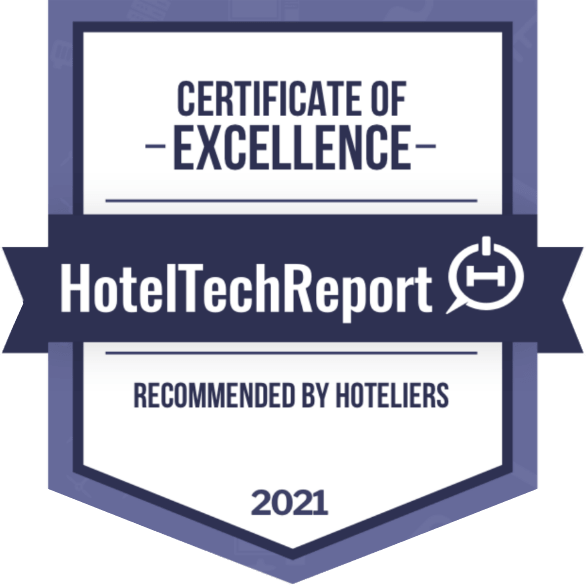Table of Contents
ToggleThe hospitality industry, known for its dynamic and competitive nature, requires a keen understanding of customer behavior, market trends, and operational benchmarks to stay ahead. Herein lies the unparalleled value of data analytics in hospitality industry. It provides a lens through which hoteliers and service providers can view the past, understand the present, and predict future trends. Whether it’s about refining guest experiences, forecasting demand, or streamlining operations, data analytics offers a pathway to not only survive but thrive in this fast-paced industry. This blog looks into the multifaceted role of data analytics in the hospitality sector, exploring its impact through various lenses such as customer behavior analysis, market trend analysis, and operational efficiency. Let’s get started!
Understanding Data Analytics in Hospitality Industry
Data analytics in hospitality industry is a broad term that encompasses the collection, analysis, and interpretation of vast amounts of data generated within the hospitality sector. This data comes from various sources such as online bookings, customer feedback, social media interactions, IoT devices in smart hotels, and operational systems. By analyzing this data, hospitality businesses can gain insights into customer preferences, behavior patterns, operational bottlenecks, and market opportunities. The goal is to use these insights to make informed decisions that enhance guest satisfaction, optimize operations, and improve financial performance.
The types of data collected in the hospitality sector are as diverse as the industry itself. They include, but are not limited to:
- Guest Data: Personal preferences, booking history, feedback, and spending patterns.
- Operational Data: Room occupancy rates, revenue per available room (RevPAR), average daily rate (ADR), and operational costs.
- Market Data: Competitor pricing, market demand trends, and customer demographics.
- Digital Interaction Data: Website traffic, social media engagement, and online reviews.
With the advent of sophisticated data analytics tools and technologies, the hospitality industry is now better equipped than ever to harness this data for strategic advantage. These tools can analyze data in real-time, providing actionable insights that can be used to tailor guest experiences, adjust pricing strategies, optimize room allocation, and improve marketing efforts. For example, predictive analytics can forecast demand spikes and dips, enabling hotels to adjust their pricing strategy to maximize revenue and occupancy rates.
4 Key Use Cases of Data Analytics in Hospitality
Data analytics in hospitality industry unlocks a myriad of opportunities for enhancing customer satisfaction, optimizing operations, and driving revenue growth. Here are four key areas where data analytics is making a significant impact:
1. Customer Behavior Analysis
Understanding customer behavior is pivotal for personalizing guest experiences and building loyalty. Through data analytics, hotels and resorts can track guest preferences, from room selection to dining choices and amenity usage. This information allows for the customization of services and offers, ensuring that guests feel valued and understood. For example, if data reveals a trend of guests preferring eco-friendly options, a hotel might introduce sustainable practices and amenities, thereby not only meeting guest expectations but also contributing to broader environmental goals.
2. Market Trend Analysis
The hospitality industry is influenced by global and local trends, from economic shifts to changes in consumer preferences. Data analytics enables businesses to identify and adapt to these trends in real time. By analyzing market data, hotels can adjust their marketing strategies, align their services with emerging demands, and stay ahead of the competition. For instance, a surge in wellness tourism might prompt a hotel to enhance its spa services and wellness packages, tapping into this growing market segment.
3. Demand Forecasting in the Hotel Industry
Accurate demand forecasting is crucial for maximizing revenue and occupancy rates. Data analytics helps predict future booking patterns based on historical data, current bookings, and external factors such as holidays, events, and economic indicators. This predictive capability allows hotels to adjust pricing dynamically, manage inventory efficiently, and optimize distribution across channels. As a result, hotels can achieve a balance between high occupancy and optimal room rates, enhancing their revenue management strategy.
4. Operational Efficiency
Operational efficiency is the backbone of a successful hospitality business. Data analytics provides insights into various operational aspects, such as housekeeping schedules, energy consumption, and staff allocation. By analyzing this data, hotels can identify inefficiencies and implement improvements, reducing costs and enhancing service quality. For example, data-driven maintenance schedules can ensure that facilities are in top condition, improving guest satisfaction while minimizing downtime and repair costs.
Enhancing Guest Experience through Data Analytics
In the hospitality industry, where competition is fierce and guest expectations continue to rise, enhancing the guest experience is paramount. Data analytics plays a crucial role in achieving this by offering personalized, seamless, and memorable experiences that guests value. This section explores how data analytics can be leveraged to elevate the guest experience from good to exceptional.
Personalization at Every Touchpoint
Data analytics enables hospitality businesses to understand their guests’ preferences and behaviors at a granular level. By analyzing data from previous stays, social media activity, and online interactions, hotels can create a 360-degree view of each guest. This comprehensive insight allows for the customization of every aspect of the guest’s journey, from the room selection and amenities to the dining experience and activities offered. For instance, if a returning guest has shown a preference for a particular type of wine, having that wine ready in their room upon arrival can make a significant impact on their perception of the hotel’s attention to detail and care.
Improving Service Quality and Efficiency
Data analytics helps identify patterns and trends that can inform service improvements. For example, analyzing check-in and check-out times alongside guest feedback can help optimize staffing levels and reduce wait times, directly enhancing the guest’s experience. Similarly, predictive analytics can forecast peak periods for dining, allowing for better staff allocation and reduced service times in restaurants.
Customized Marketing and Offers
Beyond the stay itself, data analytics is instrumental in tailoring marketing messages and offers to individual guests. By understanding past behavior and preferences, hotels can send personalized promotions and packages that are more likely to resonate with each guest. This not only increases the likelihood of repeat bookings but also strengthens the guest’s loyalty to the brand.
Enhancing In-Stay Experiences
Data analytics enables hotels to offer dynamic, in-stay experiences tailored to guest preferences. For example, a guest who frequently visits the spa may receive real-time offers for spa services during their stay, or a family with children might be informed about kid-friendly activities and dining options. This proactive approach to guest engagement can significantly enhance satisfaction and create memorable experiences.
Feedback Loop for Continuous Improvement
Finally, data analytics facilitates a continuous feedback loop. By systematically collecting and analyzing guest feedback, hotels can identify areas for improvement and implement changes that directly address guest concerns. This not only improves the guest experience for future stays but also demonstrates to guests that their feedback is valued and acted upon.
Operational Efficiency and Cost Management
Operational efficiency and cost management are critical components for success in the highly competitive hospitality industry. Data analytics offers a robust framework for understanding and optimizing various operational aspects, leading to significant cost savings and improved service quality. This section examines how leveraging data analytics can enhance operational efficiency and manage costs effectively.
Streamlining Operations through Predictive Analytics
Data analytics allows for the forecasting of guest demand with a high degree of accuracy. By analyzing historical data, booking trends, and external factors such as holidays and local events, hotels can predict busy periods and adjust staffing levels accordingly. This not only ensures that the property is adequately staffed to meet guest needs but also prevents overstaffing during slower periods, thus managing labor costs more effectively. Additionally, predictive maintenance schedules can be developed using data analytics to prevent costly repairs and extend the life of valuable assets.
Optimizing Energy Consumption
Energy costs represent a significant portion of operational expenses in the hospitality industry. Data analytics can identify patterns in energy usage and highlight areas where savings can be achieved. For example, by analyzing data from smart thermostats and occupancy sensors, hotels can adjust heating, ventilation, and air conditioning (HVAC) systems in real-time, depending on room occupancy and guest preferences, leading to substantial energy savings without compromising guest comfort.
Enhancing Inventory Management
Effective inventory management is crucial for reducing waste and managing costs. Data analytics helps in predicting the optimal stock levels of perishable goods, amenities, and other supplies based on historical consumption patterns and forecasted demand. This precision in inventory management reduces waste, ensures availability of items when needed, and optimizes the procurement process, thereby contributing to cost savings.
Improving Food and Beverage Operations
Food and beverage operations can benefit significantly from data analytics through menu optimization, portion control, and waste reduction. By analyzing sales data, guest preferences, and seasonal trends, hotels can adjust their menus to focus on high-demand, high-margin items. Data analytics can also track the popularity and profitability of dishes, guiding decisions on menu changes that align with guest preferences while managing costs.
Leveraging Automation for Efficiency
Data analytics facilitates the identification of processes that can be automated to save time and reduce human error. Automation of routine tasks, such as report generation, room assignment, and even guest communication, can significantly enhance operational efficiency. This not only frees up staff to focus on more value-added activities but also improves accuracy and responsiveness in guest service.
Conclusion
The exploration of data analytics in hospitality industry reveals a landscape where innovation, efficiency, and personalized guest experiences are increasingly becoming the norm, rather than the exception. From the granular understanding of customer behavior analysis to the strategic application of market trend analysis and operational efficiencies, the power of data analytics is undeniably transforming the hospitality sector. As we move forward, the integration of data analytics will continue to be a critical driver of innovation, efficiency, and personalized service, setting the stage for a future where both guests and businesses alike reap the benefits of informed, data-driven decisions. The journey of data analytics in hospitality industry is far from complete, but its impact is already undeniable, paving the way for a smarter, more connected, and guest-centric future.
To read about ‘Hotel Metasearch Marketing: Importance and Benefits,’ click here.
About InnQuest
At InnQuest, we understand the importance of the challenges faced by businesses in the hospitality industry. Our goal is not only to help manage your businesses more efficiently but also to provide ongoing support to engender growth and expansion. InnQuest is trusted by major hospitality businesses, including Riley Hotel Group, Ayres Hotels, Seaboard Hotels & more. Book a demonstration of our award-winning hotel management software here.



